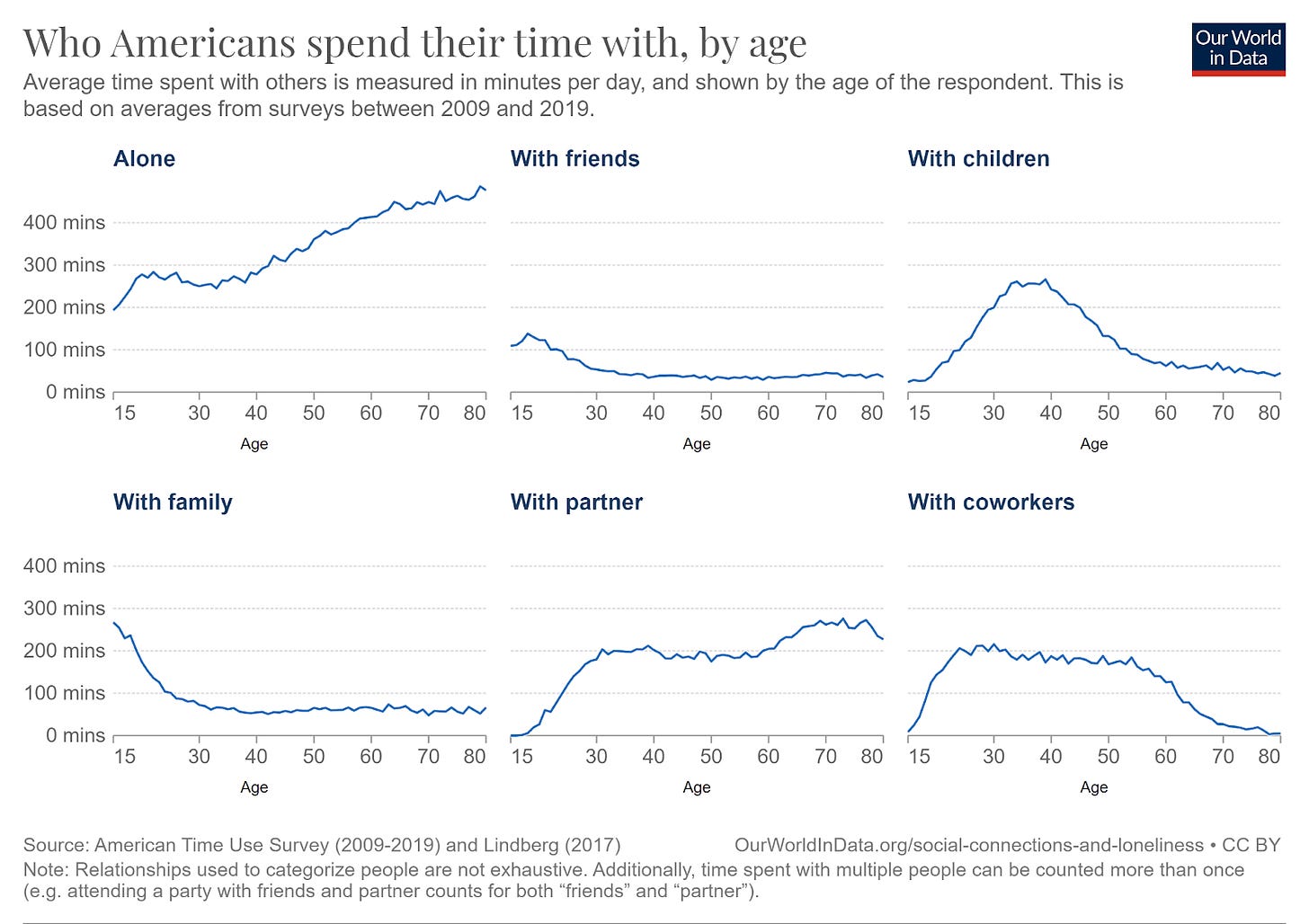🤔 Simplify Decision Making with Razors

Today, let’s dive into the fascinating world of razors – the powerful mental tools to help make decisions in uncertain situations. I recently had the privilege of interviewing Sahil Bloom (🎧 Ep 116) for the second time.
In this post, I’ll highlight 10 mental razors you can use to make faster, better decisions with professional opportunities, personal growth, and how you spend your time. I’ll also highlight some of the benefits and limitations of each.
Sahil deserves much credit for his extensive writing on this topic, including developing some of the razors I’ll share today. Check out his newsletter: The Curiosity Chronicle, which shares two posts a week to build a high-performing, healthy, wealthy life.
🪒 What is a razor?
A razor is a guiding principle or rule of thumb that aids decision-making when faced with uncertainty. It draws its concept from shaving off unnecessary complexity, enabling us to cut through the noise and make clear choices.
Similar to how "life hacks" optimize our routines to overcome overwhelm and inefficiencies, razors simplify decision-making by providing a framework to navigate the complexity and streamline our thought process. They serve as mental tools to help us separate the signal from the noise, allowing for more efficient and effective decision-making.
😀 Occam’s Razor
The simplest explanation is often the best one
Occam’s Razor states that while the truth can occasionally be complex, there is no need to default to convoluted explanations when simpler alternatives exist.
Benefits:
-
Save time and energy: By embracing Occam’s Razor, you can efficiently identify the simplest explanation, saving precious time and conserving mental energy. Instead of getting caught up in many potential explanations, you can narrow your focus to the most straightforward and likely solution.
-
Avoid mistakes and false information: Occam’s Razor protects against being misled by false information. By prioritizing simplicity, you become less prone to errors and less likely to be swayed by misleading data. This razor also safeguards against latching onto unnecessary assumptions (conjunction fallacy).
Limitations:
-
Simplicity doesn’t always equate to accuracy: While Occam’s Razor favors simplicity, it is crucial to recognize that the simplest explanation is not always correct. More complex explanations can offer greater accuracy and provide a more comprehensive understanding of a situation.
-
Potential for limiting critical thinking: Over-reliance on Occam’s Razor can inadvertently hinder critical thinking and discourage asking difficult questions. Jumping to conclusions prematurely, based solely on the simplest explanation, may lead to overlooking more detailed explanations that could provide deeper insights.
By identifying the simplest explanation, you can save time, avoid mistakes fueled by false information, and evade unnecessary assumptions. However, it is essential to remember that simplicity does not always guarantee accuracy and to remain open to more complex explanations when warranted.
🤔 Hanlon’s Razor
Never attribute to malice that which can be adequately explained by stupidity
Hanlon’s Razor offers a powerful tool for understanding and resolving conflicts, particularly in the digital realm, where common misinterpretations occur.
Benefits:
-
Foster understanding and forgiveness: Hanlon’s Razor encourages us to adopt a more compassionate and forgiving mindset. Instead of immediately assuming malice, we consider the possibility that others may be acting out of incompetence or ignorance. This shift in perspective cultivates patience, understanding, and a greater willingness to let minor issues slide.
-
Conflict resolution: We can effectively defuse conflicts by applying Hanlon’s Razor. Rather than responding defensively or with hostility, we approach disagreements with a more empathetic and open mindset. Understanding that someone’s actions may stem from incompetence or ignorance enables us to seek peaceful resolutions and build harmonious relationships.
Limitations:
-
Potential for justifying improper behavior: Hanlon’s Razor should not be used to justify rude or inappropriate behavior directed towards us. While incompetence or ignorance may be valid explanations, it is crucial to establish healthy boundaries and address unacceptable conduct appropriately.
-
Avoidance of personal responsibility: It is essential to avoid using Hanlon’s Razor as an excuse to evade accountability for our actions. While incompetence or ignorance may contribute to mistakes, we must still acknowledge our role and strive for personal growth and improvement.
Hanlon’s Razor emerges as a valuable razor, preventing misattributing others’ behavior to internal motivations when external factors are at play. Applying Hanlon’s Razor empowers us to navigate interpersonal dynamics with greater empathy, fostering healthier relationships and personal growth.
😁 Optimist Razor
When choosing who to spend time with, prioritize spending it with optimists
The Optimist Razor recognizes the positive impact of the optimists mindset on outcomes. In a world where pessimists sound smart, the optimists seem to be the ones getting rich.
Benefits:
-
Enhanced well-being and positivity: Spending time with optimists naturally uplifts our spirits and instills a sense of well-being. Optimists radiate positive energy and tend to attract favorable outcomes. By aligning ourselves with their optimism, we increase the likelihood of positive experiences and a brighter future.
-
Success through persistence: The Optimist Razor aligns with the common trait of successful individuals—persistence (remember Burn the Boats?). By surrounding ourselves with optimists who inspire us, we reinforce our persistence and increase our chances of accomplishing our goals.
Ask yourself:
-
Who do you feel good when you’re around?
-
Who do I get energy from?
-
Who makes me happy and feel good to be around?
Limitations:
-
Acknowledge personal biases: While the Optimist Razor offers a valuable tool for self-improvement, it’s important to remain realistic and aware of our biases. Our inherent biases sometimes lead us to favor the most positive explanation for a situation, even when it may not be the most accurate. Strive for a balanced perspective.
-
Importance of addressing negativity: It’s essential not to dismiss or ignore negative aspects of life. Recognizing and addressing negativity enables us to take steps toward improvement and growth. Balancing optimism with a realistic assessment of challenges is crucial for holistic well-being.
Surrounding ourselves with optimists fosters a sense of well-being, fuels our persistence, and attracts favorable outcomes. Seek out those who radiate optimism and positivity, for they have the potential to catalyze personal growth and an enriched life experience.
👔 Look The Part Razor
With two options of seemingly equal merit, choose the one that doesn’t look the part
The Look The Part Razor suggests choosing the option that doesn’t conform to the expected appearance. By opting for the candidate or solution that “doesn’t look the part,” we acknowledge that individuals who have overcome significant obstacles to success often possess more valuable qualities than those who fit the mold perfectly. This razor is attributed to writer, analyst, and former options trader Nassim Nicholas Taleb.
Benefits:
-
Avoid being deceived by appearances: Embracing the “Look the Part” razor protects you from being fooled by surface-level judgments. Instead of relying on superficial appearances, you learn to recognize individuals who have worked hard to achieve their success, making them more likely to possess the qualities necessary for excellence.
Limitations:
-
Beware of self-deception: While appearances can be deceiving positively, they can also mislead in the opposite direction. We must recognize that our biases and preconceptions can influence our judgment. Blindly choosing someone solely based on appearances could lead to the wrong option.
You can make more informed choices by acknowledging the limitations of appearances and seeking out individuals who have overcome significant challenges. However, it is crucial to remain aware of the potential for self-deception and understand the context in which this principle may or may not apply. Adopting the “Look the Part” principle empowers you to navigate decisions more clearly and effectively.
💡 Crazy Idea Razor
If someone proposes a seemingly crazy idea and they’re both a domain expert and reasonable, you should take the idea seriously
The Crazy Idea Razor provides a framework for discerning valuable insights from seemingly outlandish ideas. Inspired by Paul Graham, co-founder of Y Combinator, this razor helps people lean into concepts with asymmetric upside potential.
Benefits:
-
Cutting through the noise: This razor acts as a filter, allowing you to separate the signal from the noise, especially if you attract many unconventional ideas.
-
Challenging biases: It encourages you to slow down and resist the common bias of dismissing crazy ideas outright. Doing so opens yourself up to remarkable possibilities that may initially seem incomprehensible.
Limitations:
-
Misjudging assumptions: Evaluating whether someone is a domain expert or a reasonable person can be subjective and prone to misjudgment. It’s crucial to exercise fair judgment without being too harsh or lenient.
-
Limited perspective: Relying solely on the expertise of others may restrict your ability to fully comprehend the idea’s potential impact, as you may lack the necessary frame of reference or knowledge.
By leveraging this razor, you can navigate the noise, challenge biases, and uncover extraordinary prospects. However, it’s important to exercise sound judgment and remain aware of the limitations, ensuring a balanced and informed approach to evaluating these ideas.
🥊 Man in the Arena Razor
When faced with two paths, choose the path that puts you in the arena—choose the path with real skin in the game.
The Man in the Arena Razor encourages us to choose the path that puts us in the arena – or has real skin in the game. It’s inspired by Theodore Roosevelt’s impactful speech on Citizenship in a Republic. It emphasizes the importance of being an active participant rather than a mere critic on the sidelines. While the arena may seem daunting, it’s where growth, understanding, and success await.
Benefits:
-
Cultivating understanding and forgiveness: By embracing the Man in the Arena Razor, we shift from judgmental attitudes toward others’ failures to a more empathetic and forgiving mindset. Recognizing that everyone faces challenges and risks in the arena, we develop a deeper understanding of their journey, fostering harmonious relationships.
-
Boosting courage and fostering success: Fear of failure often keeps us from taking risks and exploring new opportunities. Embracing the Man in the Arena Razor enables us to overcome this fear, empowering us to venture into uncharted territories. By embracing failure as part of the learning process, we unlock our potential for personal and professional growth, leading to greater success in life.
-
Resilience against negativity: Being in the arena, whether in online interactions or real-life situations, exposes us to criticism and negative feedback. The Man in the Arena Razor demands thick skin and resilience. Responding with empathy and understanding negativity can help diffuse tense situations and foster a healthier online environment.
Limitations:
-
Not all participants in the arena have good intentions: It is crucial to recognize that some individuals may be driven by self-interest and disregard the consequences of their actions. Discernment is necessary to differentiate between those genuinely striving for growth and those seeking personal gain at the expense of others.
How to take negative feedback?
The internet can be a mean place. The Man in the Arena can attract pretty negative feedback. Sahil suggests that you default to empathy as the healthiest and best way to combat negativity. He points to happiness because happy people don’t intentionally attack others. So, when someone attacks you, something is likely putting them in a tough spot. You can choose to engage; that’s up to you.
We cultivate understanding, courage, and resilience by actively engaging in the arena. Embracing and learning from failures paves the way for personal growth and success. Choose the arena, embrace the challenges, and let the journey toward growth and achievement begin.
📈 Uphill Decision Razor
When faced with two options, choose the one that’s more difficult in the short-term
The Uphill Decision Razor is a powerful tool guiding us to choose the option that presents greater difficulty in the short term. This principle recognizes that opting for the tougher path often leads to substantial rewards in the long run. Sahil references Naval, who emphasizes overcoming our instinctive aversion to discomfort.
Benefits:
-
Develop skills and knowledge: Opting for the more challenging option pushes us to stretch our abilities and expand our knowledge base.
-
Long-term success: Embracing short-term difficulties cultivates resilience and perseverance, ultimately positioning us for greater success in the long term.
Limitations:
-
Grind and frustration: Choosing the harder path can be mentally and emotionally taxing, especially when results aren’t immediately apparent.
-
Working hard vs. working smart: Blindly opting for the challenging option may hinder us from exploring smarter and more efficient approaches, potentially wasting valuable resources.
-
Beware of pride: Ego-driven decisions to prove ourselves by taking the difficult path can cloud judgment and impede progress.
The Uphill Decision Razor emphasizes the value of hard work and resilience. We pave the way for long-term success and personal growth by embracing short-term challenges. However, it’s important to strike a balance and remain open to alternative strategies when warranted.
🍀 Serendipity Razor
When choosing between two paths, choose the path with a larger serendipity surface area
The Serendipity Razor is a razor that proposes that you choose the path that has the greatest serendipity to increase your chances of valuable opportunities. It is based on the idea that the more people we meet, the more experiences we have, and the more we learn, the more likely we are to come across something that will help us achieve our goals.
Benefits:
-
Expanded network: By actively seeking encounters with diverse individuals, we broaden our network, opening doors to new collaborations, insights, and opportunities.
-
Fresh knowledge and ideas: Exposing ourselves to new experiences and ideas enrich our perspective, sparking creativity and enabling innovative thinking.
Limitations:
-
Time and effort: Pursuing serendipity can be time-consuming and effort-intensive. It requires dedication to engaging with new people, seeking novel experiences, and continuously learning.
-
Timing and focus: Serendipity is particularly impactful during the early stages of life and career, as we aim to expand our “luck surface area.” Once we identify the most promising areas, shifting our focus and delving deeper into specific opportunities is beneficial.
The Serendipity Razor is a valuable mental model that enhances our chances of success by intentionally positioning ourselves for fortuitous encounters. However, it’s important to recognize that it’s not a guarantee of success and requires dedicated effort and time to put into practice. We unlock new connections, knowledge, and pathways to achieving our goals by embracing serendipity.
🤝 Rooms Razor
If you have a choice between entering two rooms, choose the room where you are more likely to be the dumbest one in the room
The Rooms Razor urges us to seek out environments where we feel uncomfortable and potentially find ourselves as the ‘dumbest’ person in the room. Deliberately placing ourselves in such situations opens doors to remarkable growth and learning opportunities.
Benefits:
-
Active listening: Being surrounded by smart people encourages us to pause our own voices and genuinely listen, leading to valuable insights and new perspectives.
-
Expanded luck surface area: Placing ourselves in rooms where growth is most important expands our potential for serendipitous encounters and fortunate breakthroughs.
Limitations:
-
Imposter syndrome and discomfort: Overcoming imposter syndrome and embracing discomfort can be challenging, as it requires us to confront inadequacy and push beyond our comfort zones.
-
Initiating interactions: Approaching individuals randomly in social settings can be daunting, even for those who thrive on social interactions. However, developing a networking strategy can help alleviate initial unease.
How to navigate networking as the ‘dumbest’ person in the room?
-
Ask thought-provoking questions: Instead of generic inquiries, ask individuals, “What are you most excited about right now?” This question fosters personal connections and opens the door for deeper conversations beyond the typical surface level. But by becoming an interested individual, you help steer the conversation for everyone else.
-
Share personal interests: Discussing topics such as family or hobbies creates common ground and facilitates more engaging and meaningful interactions.
-
Steer conversations to add value: Identify areas where you possess unique knowledge or expertise and steer the conversation toward those subjects. Adding value to the discussion establishes yourself as an interested and valuable participant.
The Rooms Razor propels us towards growth and personal development by immersing us in uncomfortable environments. By embracing discomfort and seeking out rooms where we may be the least knowledgeable, we embark on a transformative journey of learning and expansion.
⏳ Time Billionaire Razor
When choosing between two paths, choose the path that places the highest appreciation on the value of your time
The Time Billionaire razor is a principle that emphasizes the importance of valuing and maximizing your time. It shifts the focus from monetary wealth to recognizing time as our most precious resource. Introduced by Graham Duncan, this concept highlights how individuals often fail to appreciate the value of their own time until it slips away.
As Sahil describes it, the essence of being a Time Billionaire lies in the awareness of the fleeting nature of time and finding fulfillment in the ordinary moments of daily life.
The American Time Use Survey provides a powerful visual representation of how people allocate their time throughout their lives. It serves as a reminder to consciously decide how we spend our time and with whom we choose to invest it. More importantly, it urges us to reflect on these findings and make deliberate choices that deviate from the patterns indicated by the data.

By embracing the Time Billionaire razor, we can gain a new perspective on the value of our time and proactively shape our lives to align with our priorities and aspirations.
The content on this page is accurate as of the posting date; however, some of our partner offers may have expired.
Editor’s Note: Opinions expressed here are the author's alone, not those of any bank, credit card issuer, hotel, airline, or other entity. This content has not been reviewed, approved or otherwise endorsed by any of the entities included within the post.






